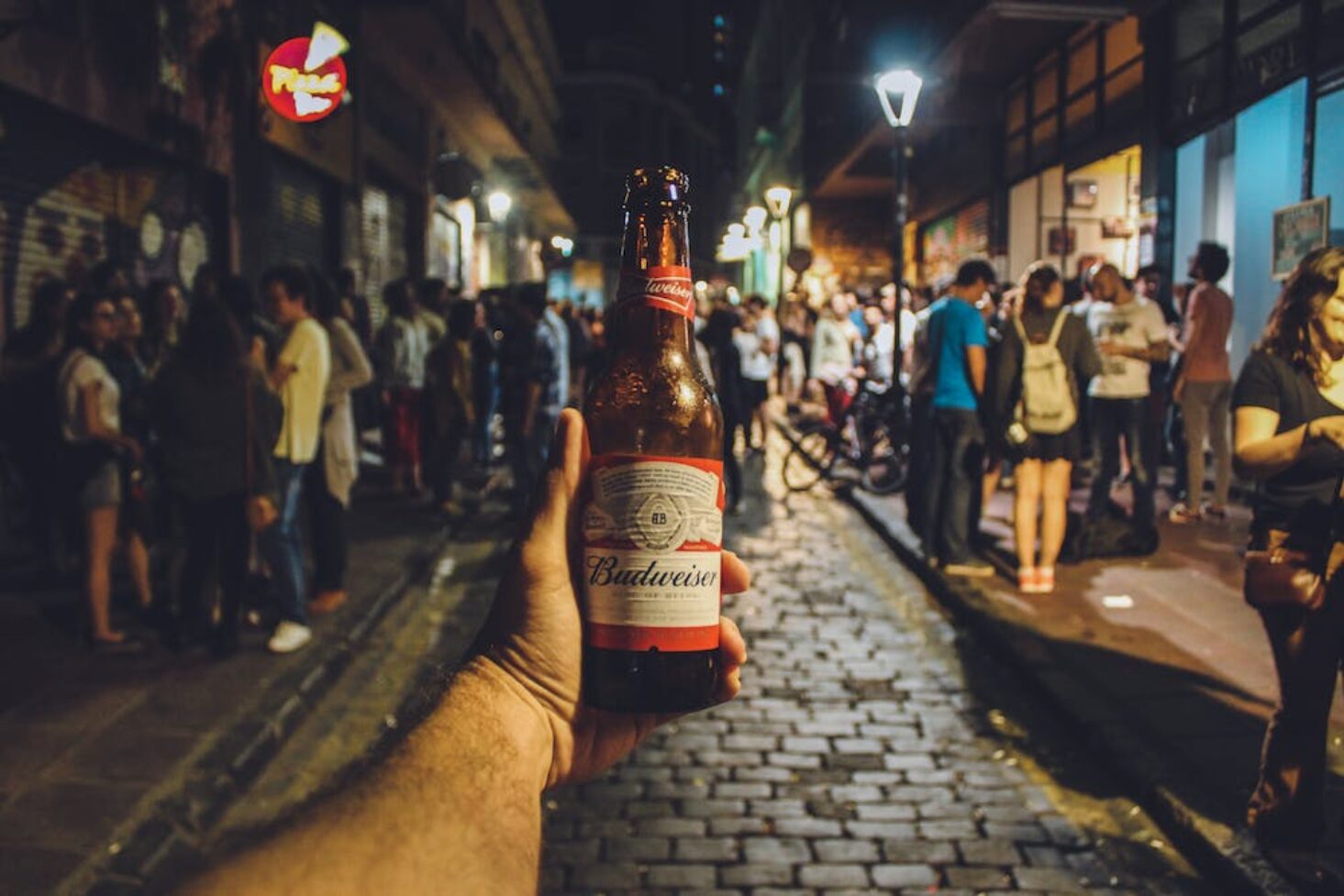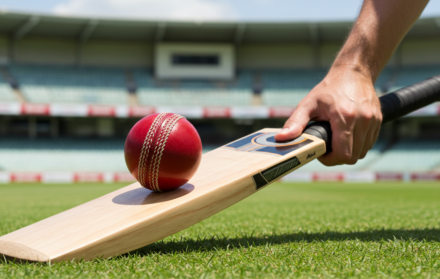
How to Handle Alcohol on Nights Out
Venturing into the nocturnal landscape of social gatherings brings with it the promise of laughter, camaraderie, and often, the clink of glasses brimming with libations. Amidst the vibrant tapestry of nightlife, understanding how to gracefully handle alcohol on nights out becomes an art worth mastering.
The concept of handling alcohol on nights out isn’t merely about steering clear of excess; it’s a nuanced dance that involves enjoying the moment while keeping a watchful eye on personal well-being.
Responsible drinking is the linchpin of handling alcohol on nights out, transforming it from a potential hazard to an enriching aspect of the social tapestry.
Pacing becomes the secret ingredient, allowing individuals to relish the symphony of flavors without losing themselves in the crescendo. It’s about savoring the moment in moderation, a delicate balance that turns the night into an enduring memory rather than a hazy blur.
The social dynamics of nights out often include the pressure to conform to drinking norms. However, knowing how to assert personal choices regarding alcohol injects authenticity into the social experience. Declining a drink or opting for a non-alcoholic alternative becomes a statement of self-respect, contributing to a night that is both enjoyable and true to one’s values.
As we delve into the art of handling alcohol on nights out in the upcoming sections, this guide aims to provide practical insights and tips. From understanding the nuances of responsible drinking to navigating social dynamics with finesse, the goal is to empower individuals with the knowledge needed for a night out that harmonizes revelry with well-being.
By mastering the art of handling alcohol, nights out become vibrant, memorable experiences that echo with laughter, connection, and responsible enjoyment.
Balancing Act: Navigating Alcohol Responsibly

Navigating alcohol consumption on nights out is crucial for a safe and enjoyable experience. It’s essential to strike a balance between having a good time and being responsible. Here are some tips to handle alcohol wisely:
- Know Your Limits: Understanding your tolerance is key. Pace yourself and alternate alcoholic drinks with water to stay hydrated. Keep in mind that alcohol affects individuals differently, so be aware of your own limits.
- Choose Lighter Options: Opt for lower-alcohol beverages or alternatives like mocktails. Lighter options can help you maintain control over your alcohol intake while still enjoying the social aspect of drinking.
- Plan Safe Transportation: Arrange transportation in advance to ensure a safe journey home. Designate a sober driver, use public transport, or consider rideshare services. It’s a responsible choice that safeguards both you and others on the road.
- Stay Mindful of Others: Be aware of those around you and respect their limits. Encourage a positive drinking environment by promoting responsible behavior within your group.
- Have an Exit Strategy: If you start feeling uncomfortable or have surpassed your limits, have an exit strategy in place. Let a friend know if you plan to leave early or if you need assistance.
- Embrace Social Alternatives: For a unique and exciting twist to your night out, consider incorporating Sixes Social Cricket into your plans. It’s not just a game; it’s a dynamic, multiplayer batting challenge that combines sports, technology, and camaraderie. This experience is perfect for groups, allowing you to bond with friends while engaging in a thrilling cricket match against virtual bowlers. Beyond the game, Sixes offers a delightful culinary experience with a range of dishes and beverages, making it an ideal stop for a memorable and alcohol-free activity during your night out.
Remember, a successful night out is not just about the quantity of drinks but the quality of the experience. Incorporating diverse activities like Sixes Social Cricket ensures a well-rounded and enjoyable time without solely relying on alcohol.
Stay Hydrated
To remain hydrated while enjoying an evening out, please adhere to the following instructions:
1. Consume water before leaving. Pre-hydrating will help prepare your body for the dehydrating effects of alcohol.
2. Alternate alcoholic beverages with water. For every alcoholic drink consumed, drink a glass of water to stay hydrated and pace yourself.
3. Avoid sugary beverages. Cocktails and mixed drinks often contain sugary syrups, which can speed up dehydration. Stick to plain water or plain soda water as mixers.
4. Always have a water bottle at your disposal. Keeping a water bottle with you allows you to stay hydrated throughout the evening, especially if you are dancing or in a hot environment.
5. Allocate time for water consumption. Set reminders to take frequent breaks from alcohol and drink a glass of water during those intervals.
6. Be mindful of your alcohol intake. Drinking too much alcohol can lead to dehydration, so it is important to drink responsibly and be aware of your limits.
7. Pay attention to your body’s signals. If you start feeling thirsty, lightheaded, or fatigued, it is an indication that you need to drink more water to stay hydrated.
By following these instructions, you can ensure that you stay hydrated while enjoying your evening out.
Eat Before Drinking
Before going out to drink, it is important to consume a substantial meal. Consuming a meal before drinking can slow down the absorption of alcohol into your bloodstream, reducing the likelihood of becoming excessively intoxicated too quickly.
It also helps maintain a consistent blood sugar level, thereby preventing hypoglycemia, which can exacerbate the effects of alcohol.
To ensure that you consume a meal before drinking, make prior arrangements for your evening. Allocate time for a balanced meal that incorporates carbohydrates, proteins, and healthy fats. This combination can impede alcohol absorption and keep you satiated for a longer duration.
Opt for foods such as pasta, rice, and bread that are rich in carbohydrates. Include lean proteins like grilled chicken or fish to achieve satisfaction. Do not forget to incorporate vegetables and fruits into your meal to attain essential nutrients.
Steer clear of high-sodium or unhealthy fatty foods as they can lead to dehydration and exacerbate the negative effects of alcohol consumption. Also, be mindful of portion sizes to avoid feeling overly full or uncomfortable.
By consuming a meal before drinking, you promote a healthy approach to alcohol consumption and enhance your overall well-being. Remember, consuming a meal prior to drinking does not eradicate the risks associated with alcohol. Always consume alcohol responsibly and be aware of your limits.
Avoid Mixing Different Types of Alcohol
Mixing different types of alcohol can be harmful to your body and overall well-being. It is crucial to refrain from this practice in order to ensure a healthy and enjoyable evening out.
The combination of various types of alcohol can lead to increased intoxication. The consumption of multiple types of alcohol can impede your body’s ability to process and metabolise the alcohol effectively. Consequently, this can result in a more rapid and potent impact on your body, leading to heightened impairment levels.
The mixture of different types of alcohol can also elevate the risk of experiencing negative side effects such as nausea, vomiting, and dizziness. Different alcoholic beverages contain varying levels of toxic byproducts known as congeners. By mixing different types, the overall amount of congeners in your system increases, exacerbating these adverse effects.
Combining different types of alcohol can also make it challenging to gauge your level of intoxication. Each alcohol variant affects the body in its own unique way, and consuming a mixture can hinder the monitoring of your alcohol consumption. This can potentially lead to excessive drinking and raise the likelihood of alcohol-related risks.
To ensure a safer and more enjoyable evening out, it is advisable to steer clear of mixing different types of alcohol. Instead, opt for sticking to a single type of alcohol throughout the night and drink in moderation. This approach helps you maintain control over your alcohol intake and minimises the occurrence of negative side effects. Always drink responsibly and be aware of your limits.
Alternate Alcoholic and Non-Alcoholic Drinks
Alternate between alcoholic and non-alcoholic drinks when drinking to maintain a balanced alcohol consumption.
Enjoy the social aspect of drinking without consuming excessive alcohol. Start with a refreshing mocktail or non-alcoholic beer to quench your thirst. These options provide a similar taste to alcoholic beverages without the intoxicating effects.
Then, have a light alcoholic drink like a low-alcohol cocktail or spritzer. These drinks have a lower alcohol percentage, allowing you to enjoy the taste without excessive drinking.
After an alcoholic drink, switch back to a non-alcoholic option. Try a flavoured soda, sparkling water with fruit, or herbal iced tea as alternatives. These can cleanse your palate and give you a break from alcohol effects.
Remember, pace yourself and drink responsibly. Alternate between alcoholic and non-alcoholic drinks throughout the night for a balanced and enjoyable experience.
By incorporating this strategy into your nights out, you can enjoy the social atmosphere while being mindful of your alcohol consumption. Making conscious choices about what you drink can help you have a fun and safe evening.
Know Your Limits
Knowing your limits with alcohol is crucial for a safe and enjoyable night out. Here are important factors to consider:
Understand the recommended guidelines: Understand the guidelines for safe alcohol consumption. The National Health Service (NHS) advises that both men and women should not exceed 14 units (equivalent to about six pints of average-strength beer or ten small glasses of wine) per week.
Know your tolerance: Everyone’s tolerance to alcohol is different. Factors like body weight, metabolism, and individual tolerance levels affect how alcohol affects you. Understand your limits and how alcohol may personally affect you.
Pace yourself: Drinking too quickly can lead to excessive alcohol consumption and loss of control. Drinking at a slower pace helps your body process alcohol effectively. Alternate alcoholic drinks with water or non-alcoholic beverages to stay hydrated and pace yourself throughout the night.
Recognise signs of intoxication: Be aware of signs indicating you’ve reached your limit, such as slurred speech, impaired coordination, or behaviour changes. If you notice these signs, stop drinking and switch to non-alcoholic options.
Have a plan: Prior to drinking, plan for a safe way home. Arrange a designated driver, use public transportation, or book a taxi/ride-sharing service.
Remember, knowing your limits and drinking responsibly ensures an enjoyable night without compromising safety.
In 2002, an NHS study found that overconsumption of alcohol led to an estimated 6,481 alcohol-related deaths in the UK. This prompted awareness campaigns and stricter regulations to educate the public and reduce harmful drinking behaviours.
These efforts have lowered alcohol-related deaths and encouraged informed alcohol consumption choices. It reminds us of the importance of understanding and respecting personal alcohol limits.
Plan a Safe Way to Get Home

Planning a safe way to get home is crucial for your well-being and the safety of others. Here are a few steps to follow:
1. Choose a designated driver from your group who will not consume alcoholic beverages and is responsible for driving everyone home safely.
2. Consider using public transportation, such as buses, trains, or trams. Check the timetables and plan your route in advance.
3. Utilize ride-sharing services like Uber or Lyft. Download the necessary app on your phone and set up your payment method beforehand.
4. Pre-book a taxi or call one when you are ready to leave. Save the contact details of local taxi companies on your phone.
5. If your destination is nearby and you feel comfortable walking, opt for well-lit and busy routes. Stay aware of your surroundings and trust your instincts for your safety.
6. If the above options are not feasible, think about reserving a nearby hotel or staying with a friend. Make arrangements in advance.
Remember, it is essential to plan your safe way home before you start consuming alcohol. Do not rely on your judgment or decision-making abilities while under the influence. Safety should always be a top priority.
Look out for Your Friends
When you’re out at night, ensure your friends’ safety and well-being. Here are some key ways to do so:
- Communication: Establish a plan and keep an open line of communication. Agree on a meeting point, check in throughout the night, and notify each other if leaving the group.
- Awareness: Pay attention to your friends’ behaviour and well-being. Watch for signs of excessive alcohol consumption, such as slurred speech, stumbling, or unusual behaviour. If you notice concerning signs, step in and offer assistance or seek help.
- Stick together: Avoid leaving a friend behind or letting them go off alone. Stay close to each other and make sure everyone is accounted for.
- Moderation: Encourage responsible drinking. Remind friends to pace themselves, alternate alcoholic beverages with water, and know their limits. Support their decisions to stay within their comfort zone.
- Safe transportation: Ensure friends have a safe way home. Arrange for a designated driver, call a ride-sharing service, or find a reliable taxi.
Taking care of your friends is a shared responsibility. By looking out for each other, you can create a safer and more enjoyable night out.
Be Aware of Your Surroundings

When going out at night, it is crucial to be aware of your surroundings for your safety and well-being. Here are some essential points to take into account:
- Familiarise yourself with the location: Take note of the layout of the venue, including emergency exits and areas where security personnel are present. Knowing the layout can be helpful in case of an emergency.
- Stay vigilant: Pay attention to the people around you and any suspicious activities. Trust your instincts and be cautious if something doesn’t feel right.
- Keep an eye on your belongings: Keep your personal belongings close to you at all times to protect them. Be wary of pickpockets or opportunistic thieves.
- Buddy system: It is safer to go out with a friend or a group. Watch out for each other and agree on a plan in case someone gets separated.
- Monitor your alcohol intake: Alcohol impairs judgment and makes you more vulnerable. Be mindful of how much you drink, pace yourself, and stay hydrated with water.
Remember, your safety is of utmost importance. Being aware of your surroundings and making informed decisions will ensure a memorable and secure night out.
Respect Personal Boundaries
Respecting personal boundaries is crucial when handling alcohol on nights out. Always prioritise consent and personal space.
1. Respect personal space: Be mindful of people’s personal space. Avoid invading their personal bubble or making them uncomfortable.
2. Consent: Obtain clear and enthusiastic consent before engaging in any activities. Respect others’ boundaries and never pressure or coerce anyone.
3. Listen and observe: Pay attention to non-verbal cues and body language. Give space and offer assistance if someone seems uncomfortable or distressed.
4. Communicate openly: Clearly communicate personal boundaries to others. Respect their boundaries too. Open and honest communication prevents misunderstandings.
5. Be aware of alcohol’s effect: Alcohol can alter behaviour and judgement. Understand its impact on yourself and others. Avoid excessive drinking to remain aware of personal boundaries.
6. Watch out for friends: Look out for friends and ensure they respect personal boundaries. If you see concerning behaviour, intervene and support the person whose boundaries are being violated.
Remember, respecting personal boundaries is essential for a safe and enjoyable night out. By being mindful of others’ comfort and consent, you can help create a positive and respectful environment.





